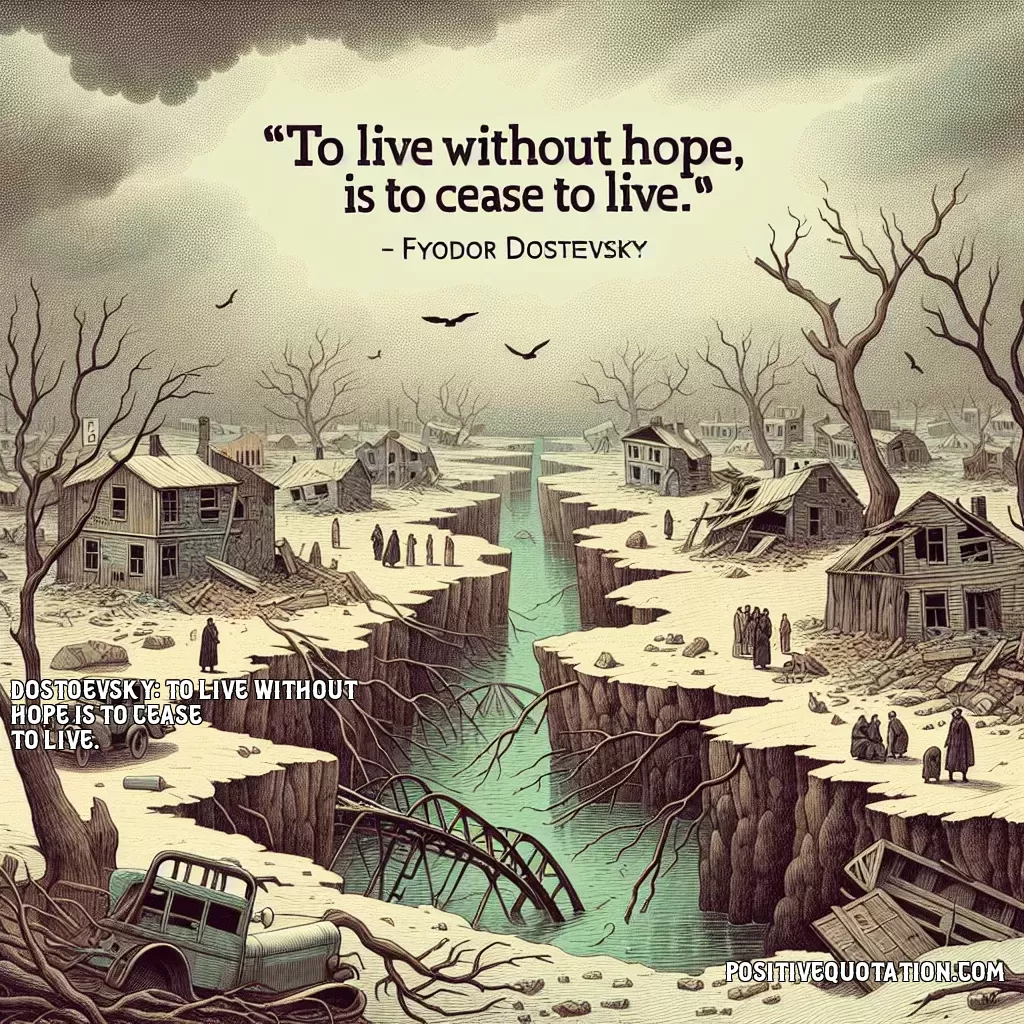
Dostoevsky: To live without hope is to cease to live.
Author: Fyodor Dostoevsky
👁️ 5 views
Fyodor Dostoevsky's quote, "To live without hope is to cease to live," speaks to the essential nature of hope in maintaining the human spirit and in driving the force of life itself. At its core, the quote suggests that hope is a fundamental component of a fulfilled and meaningful life. It implies that hope is not merely a passive feeling but an active engagement with one's existence, guiding ambitions, providing resilience, and infusing life with purpose. Dostoevsky, known for his exploration of the human condition, understood that hope fuels the perseverance to face life's adversities and uncertainties. Without hope, individuals might find themselves trapped in despair, stagnation, and a lack of motivation. The cessation of hope leads to a metaphorical death, where one loses the will to envision a better future or to strive for personal growth and improvement. Moreover, the quote emphasizes the interplay between hope and life, where hope is portrayed as the lifeblood that sustains us through trials and tribulations. Hope catalyzes change and innovation, encourages us to overcome obstacles, and inspires us to achieve dreams that seem out of reach. By anchoring ourselves in hope, we transform our experiences and perceptions, allowing us to endure the darkest times with courage and optimism. In essence, Dostoevsky's words remind us that the human spirit thrives on hope, a critical element that vivifies our journey, spurs resilience, and fosters the courage to continue living even in the face of adversity.
Quote By: Fyodor Dostoevsky
Fyodor Dostoevsky was a renowned Russian novelist and philosopher, born on November 11, 1821, in Moscow. His works, including "Crime and Punishment," "The Brothers Karamazov," and "The Idiot," delve into complex themes of morality, free will, and the human condition, reflecting his own struggles with poverty and existential despair. Dostoevsky's literary contributions have had a profound impact on literature and psychology, establishing him as a pivotal figure in world literature, and he passed away on February 9, 1881, in St. Petersburg.
Bio added on: 2025-02-15 16:55:50